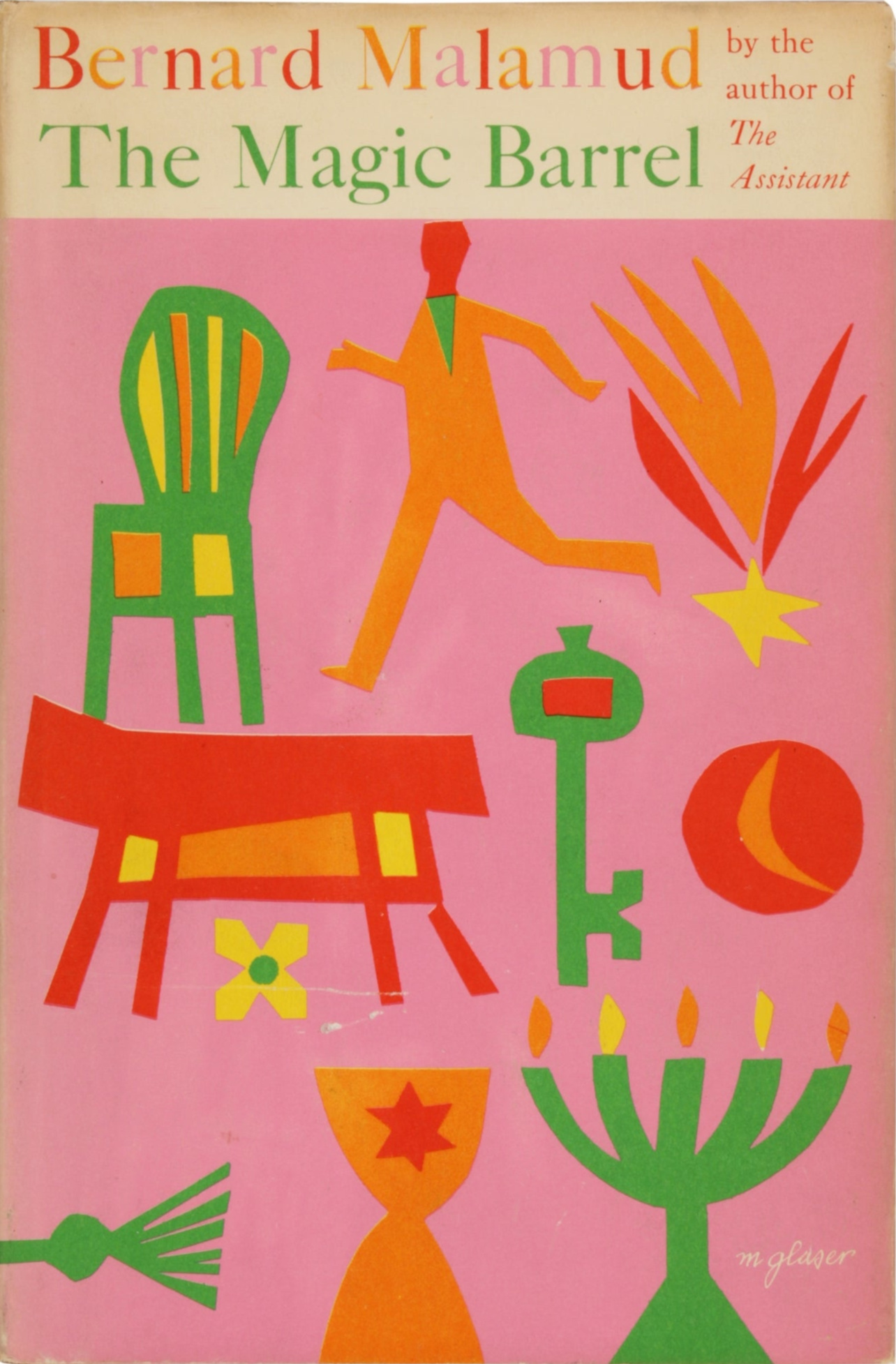Hardcover, 214 pages
English language
Published April 12, 1958 by Farrar Straus & Cudahy.

Hardcover, 214 pages
English language
Published April 12, 1958 by Farrar Straus & Cudahy.
In reviewing Barnard Malamud's book, The Assistant, Alfred Kazin wrote: "As one can see in his highly surrealistic baseball novel, The Natural, and in his eerie Partisan Review story of a Jewish marriage broker, The Magic Barrel, Malamud is naturally a fantasist of the ordinary, the commonplace, the average. . . . In the superb The Magic Barrel Malamud really caught the accents of the hallucinated, the visionary, and the bizarre. . . . The word 'magic' naturally occurs in Malamud's best work—or when he is at his best. And then, as befits a writer who has lived 'in the Jewish experience,' it serves to clarify and intensify our sense of what that experience really is."
This famous take of Leo Finkle, a rabbinical student looking for a wife with the help of Pinye Salzman, a marriage broker, is now presented as the title story of Mr. …
In reviewing Barnard Malamud's book, The Assistant, Alfred Kazin wrote: "As one can see in his highly surrealistic baseball novel, The Natural, and in his eerie Partisan Review story of a Jewish marriage broker, The Magic Barrel, Malamud is naturally a fantasist of the ordinary, the commonplace, the average. . . . In the superb The Magic Barrel Malamud really caught the accents of the hallucinated, the visionary, and the bizarre. . . . The word 'magic' naturally occurs in Malamud's best work—or when he is at his best. And then, as befits a writer who has lived 'in the Jewish experience,' it serves to clarify and intensify our sense of what that experience really is."
This famous take of Leo Finkle, a rabbinical student looking for a wife with the help of Pinye Salzman, a marriage broker, is now presented as the title story of Mr. Malamud's first collection of short fiction. The volume contains thirteen stories in all. Three of the more recent ones—"The Last Mohican," "Behold the Key," and "The Lady of the Lake"—have Italian settings. Others, well known to the growing circle of Malamud admirers, are "Angel Levine," "A Summer's Reading," "The First Seven Years," and "Take Pity."
All the stories in The Magic Barrel partake of Malamud's special quality. Herbert Gold defines this quality as follows: "His unrelenting pity for straining sould reminds us of Dostoevsky—if we can imagine Dostoevsky tempered by Chagall's lyric nostalgia for a lost Jewish past."